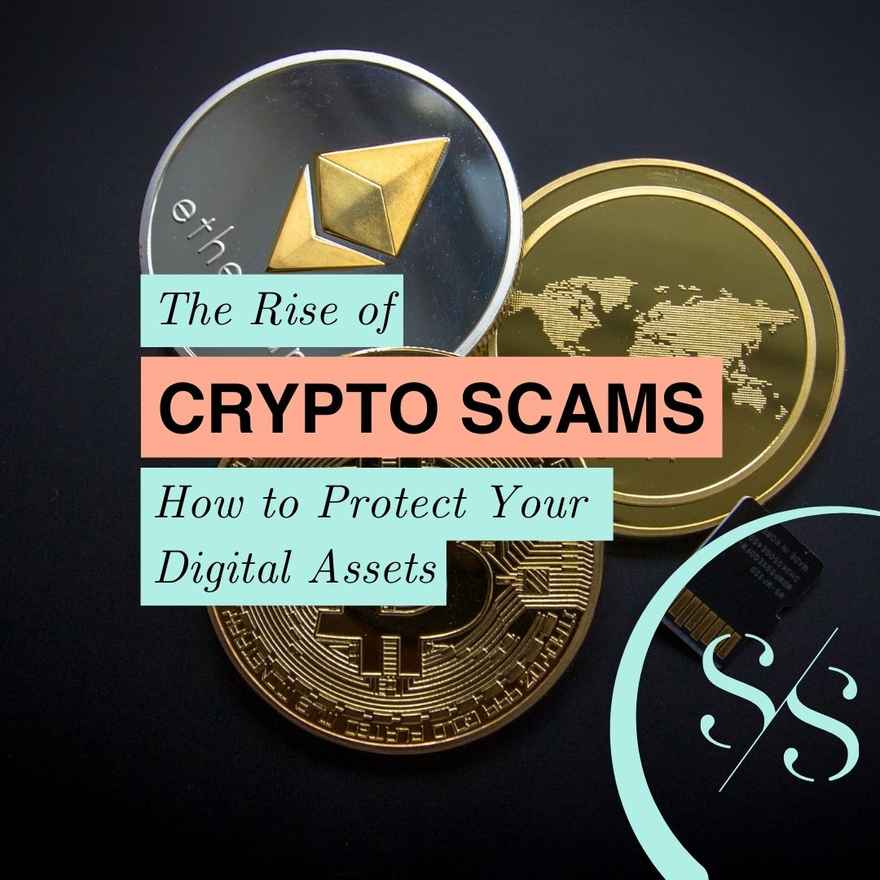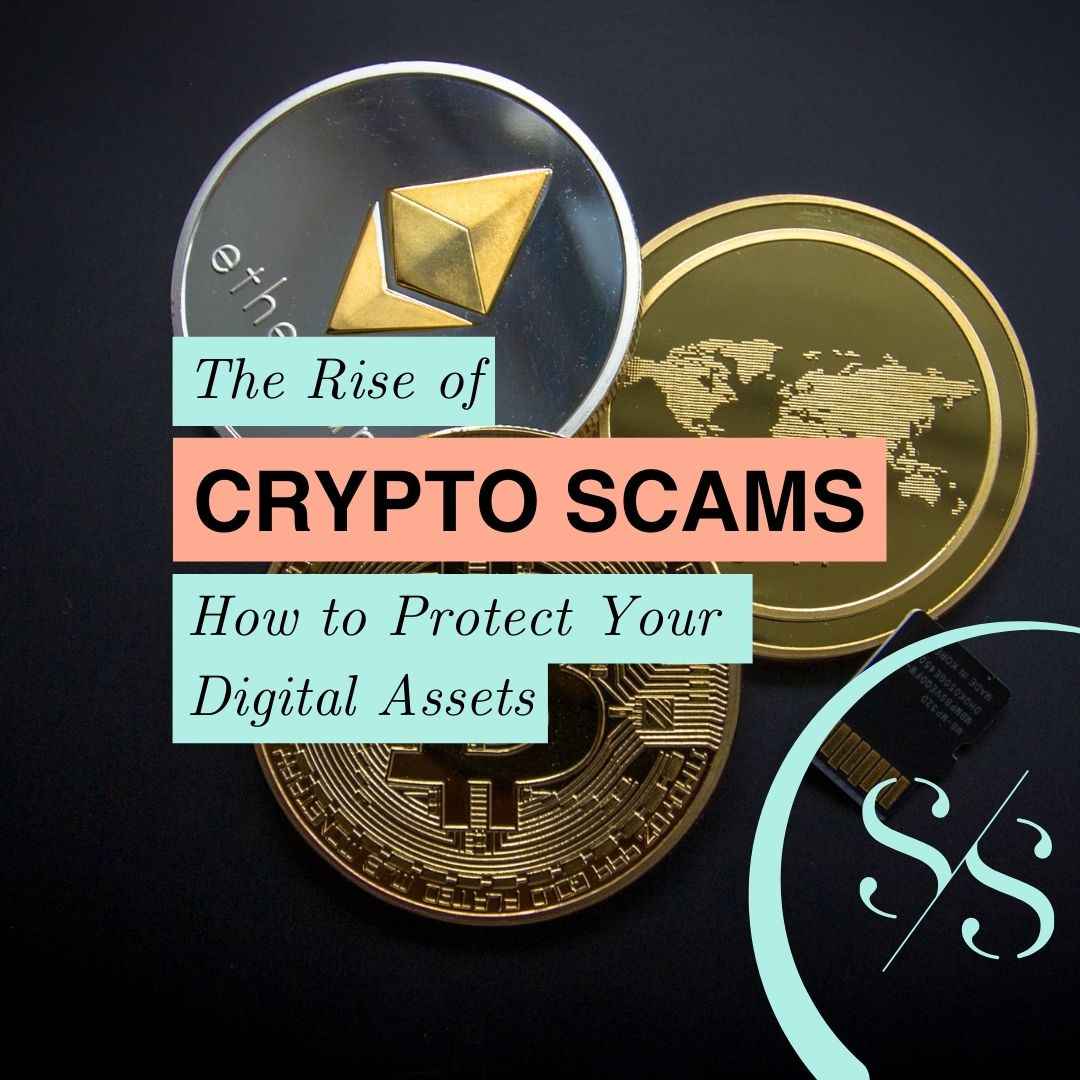The Rise of Crypto Scams: How to Protect Your Digital Assets

The Rise of Crypto Scams: How to Protect Your Digital Assets
Cryptocurrency has revolutionised the financial landscape, offering unprecedented opportunities for investors and online traders. However, with great opportunity comes great risk, and the rise of crypto scams is a dark cloud looming over the crypto community. This blog aims to shed light on the increasing prevalence of crypto scams, the tactics scammers use, and how you can protect your digital assets.
The Increasing Prevalence of Crypto Scams
Over the past few years, the adoption of cryptocurrencies has surged, attracting not only investors but also scammers. According to a report by the Federal Trade Commission (FTC), cryptocurrency-related scams have increased by nearly 60% from 2020 to 2021. These scams can take various forms, each more sophisticated than the last, making it imperative for investors to stay vigilant.
Common Tactics Used in Crypto Scams
Scammers employ a variety of tactics to deceive unsuspecting victims. Here are some of the most common:
Phishing
Phishing involves tricking individuals into revealing their private keys or login information. This is often done through fake websites that look identical to legitimate crypto exchanges or wallets.
Ponzi Schemes
In a Ponzi scheme, returns to earlier investors are paid out using the capital of newer investors rather than profit earned. These schemes eventually collapse, leaving most investors with significant losses.
Fake ICOs
Initial Coin Offerings (ICOs) are a popular way for new cryptocurrency projects to raise funds. Scammers create fake ICOs to lure investors into contributing their money to a project that doesn’t exist.
Red Flags to Watch Out For
Recognising the red flags can save you from falling victim to a crypto scam. Here are some warning signs:
- Unrealistic Promises: If an investment opportunity guarantees high returns with little to no risk, it's likely a scam.
- Urgency and Pressure: Scammers often create a sense of urgency to pressure victims into making quick decisions.
- Lack of Transparency: Legitimate projects provide detailed information about their team, technology, and roadmap. A lack of transparency is a major red flag.
- Unverified Sources: Always verify the legitimacy of the source before clicking on any links or downloading any files.
Best Practices for Protecting Your Digital Assets
Protecting your digital assets requires a proactive approach. Here are some best practices:
- Use Secure Wallets: Store your cryptocurrencies in secure wallets, preferably hardware wallets, which are less susceptible to hacking.
- Enable Two-Factor Authentication (2FA): Adding an extra layer of security can prevent unauthorised access to your accounts.
- Conduct Due Diligence: Before investing in any project, thoroughly research its team, technology, and business model. Look for reviews and feedback from other investors.
- Regularly Update Software: Ensure that your wallets and other crypto-related software are always up to date to protect against vulnerabilities.
The Role of Regulation and Consumer Education
Regulation plays a crucial role in combating crypto scams. Governments and regulatory bodies around the world are working to create frameworks that protect investors without stifling innovation. Consumer education is equally important; by staying informed and aware of potential risks, investors can make smarter decisions.
Practical Tips for Recovering from a Crypto Scam
If you find yourself a victim of a crypto scam, it’s essential to act quickly:
- Report to Authorities: Report the scam to law enforcement and financial regulatory bodies. This can help in tracking down the scammers and retrieving funds.
- Seek Legal Advice: Consult a legal expert who specialises in cryptocurrency to explore your options for recovering funds. You can complete our contact form for more information.
- Notify Your Exchange: Inform your crypto exchange about the scam. They may be able to freeze transactions or provide additional support.
Real-Life High-Profile Crypto Scams of 2023
Here are some sources detailing high-profile crypto scams in 2023:
- Crypto's 2023 was marred by fraud and scandal - This article discusses significant frauds and scandals in the crypto world, including the case of Bankman-Fried.
- Crypto Scams Netted $2B in 2023 - An overview of the $2 billion lost to various scams, rug pulls, and hacks in 2023.
- The TOP 5 Crypto Scams of 2023 - A detailed list of the top five crypto scams, including HyperVerse and Pig-butchering.
- Crypto Scam Tracker - A tool by the Department of Financial Protection to search for specific complaints about crypto scams.
- Crypto fraud losses rose to $3.9B in 2023 - An article discussing the rise in crypto fraud losses to $3.9 billion in 2023.
- Cryptocurrency scams: Common types and prevention - Information on common types of cryptocurrency scams and how to prevent them.
- 10 Most Common Cryptocurrency Scams in 2024 - A list of common cryptocurrency scams, including rug pulls and Ponzi schemes.
- Cryptocurrency fraud is now the riskiest scam - A report by the BBB on the biggest scams of 2023, highlighting the risks of cryptocurrency fraud.
Conclusion
The rise of crypto scams is a stark reminder of the risks that come with the opportunities in the cryptocurrency world. By staying informed, recognising red flags, and practising due diligence, you can protect your digital assets from these threats. Remember, your vigilance is your best defence.
Stay Safe
Sarah Cornforth
Safe Solutions UK
Recent Articles
Check out our most recent blog articles below.





0 comments
Leave a comment
Please log in or register to post a comment